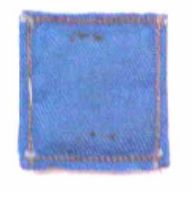12-Gauge Bean Bag Round
|
After firing, the cordura nylon bag expands and strikes the target more or less expanded to its full size of about 2 inches square. On striking an individual, it delivers a strong blow to the body, briefly stunning the subject, without penetrating the body. The Bean Bag Round may be used for crowd control, personnel incapacitation, personnel seizure, or to clear facilities of personnel. After firing, the speed of the bean bag round falls off rapidly, and it falls to the ground after 150 feet. For this reason, injuries from this round depend on the distance and area of the body struck by the round. Beyond the maximum effective range of 50 feet, any injury would be unlikely. At shorter ranges, bruising can be noted. If the round strikes the head, the injuries can mimic those of a blunt object striking the head forcefully. At very close range (20 feet or less), the injuries can be fatal. |
From Operational Medicine 2001: Health Care in Military Settings
CAPT Michael John Hughey, MC, USNR
NAVMED P-5139
January 1, 2001
Bureau of Medicine and
Surgery,
Department of the Navy,
2300 E Street NW,
Washington, D.C,
20372-5300
United States Special Operations Command,
7701 Tampa Point Blvd.,
MacDill AFB, Florida,
33621-5323
Home · Textbooks and Manuals · Videos · Lectures · Distance Learning · Training · Operational Safety · Search
This website is dedicated to the development and dissemination of medical information that may be useful to those who practice Operational Medicine. This website is privately-held and not connected to any governmental agency. The views expressed here are those of the authors, and unless otherwise noted, do not necessarily reflect the views of
the Brookside Associates, Ltd., any governmental or private organizations. All writings, discussions, and publications on this website are unclassified.
© 2006 Medical Education Division, Brookside Associates, Ltd. All rights reserved
 This round is fired from a standard 12-gauge shotgun, and consists of a
fabric bag filled with small (#9) lead shot. It weighs a little less than an
ounce and a half.
This round is fired from a standard 12-gauge shotgun, and consists of a
fabric bag filled with small (#9) lead shot. It weighs a little less than an
ounce and a half.